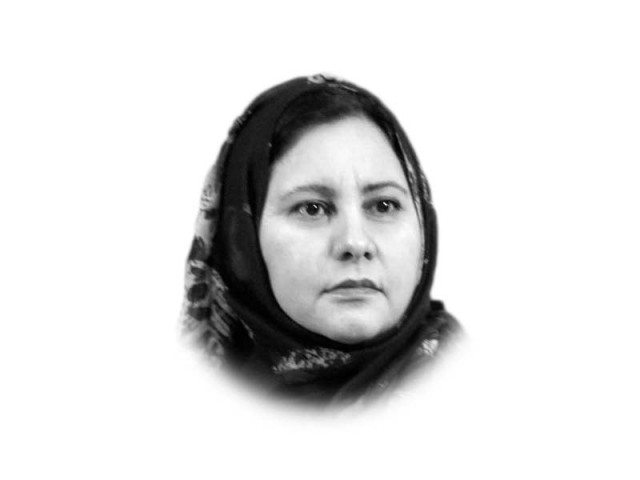Aman 2021 — steering towards stability
Will nations join forces to wage wars on one another, or will they join to give humanity a better, more secure future?

‘Together for Peace’, have come the navies of 45 countries, docking their fleets at the shores of Karachi Port, their keels cutting the bosom of the Arabian waters, and their starboards saluting the slogan that perhaps humanity can exist peacefully — yet again, that peace has to be guarded with a thousand fleets.
As friends and partners join the mega-exercises that are running from February 11-16, the event is being paralleled with the International Maritime Conference (IMC-21). The IMC, organised by the National Institute of Maritime Affairs (NIMA), will harbour from around the globe, eminent scholars and dignitaries on sea-faring and blue-economy. Those who have an eye on climate change and the depleting continental resources, realise that the future of humanity can be secured in the vast waters that are filled with food and minerals in the multitudes.
Yet again, will nations gather and join forces to wage wars on one another, or will they join to give humanity a better, more secure future? Posturing as the harbinger of a peaceful blue-economy for the region, Aman at the Karachi Port aims to bring together friends against evils of the seas like piracy, smuggling, drug-trafficking, gun-running, human smuggling and terrorism, making the net-security of the Indian Ocean Region (IOR) integrated and systemised. And to provide a platform for nations to take their leads into effective use of ocean resources and lucrative sea-based businesses like food, freight, mineral exploration and energy supplies. These are the challenges that the participants need to address for the sake of the larger humanity, for the coming difficult times that are worrying only the fore-informed.
As naval fleets and personnel of aspiring regional powers like China, Russia and Turkey; and of trusted friends like Saudi Arabia, Malaysia, Indonesia, UAE and Qatar; and of distant competitors like Australia, UK, Japan; and of friends from Africa, like Egypt, Nigeria and Tanzania; and other participants and observers gather in Karachi, Pakistan has gained the privilege to be accommodating of the idea of a ‘Development of Blue Economy under a Secure and Sustainable Environment — and a shared future for the Western Indian Ocean Region’.
An idea of the Western IOR also tends to separate the economy and security of the Western side of the IOR from its eastern side — thus dividing the IOR into segments of like-minded friends that do not necessarily want to be treated as a single entity that can be swayed by one regional power or the other. Indeed, India’s 2015 naval strategic document has envisioned India as a ‘net security provider’ in the IOR, overseeing the Bay of Bengal and protruding its influence into the Malacca Strait on one end and allying with states as far as to the eastern African coast. India’s aspirations in the IOR do not stand in isolation. They are backed by interests of friends of the Quad, the US, Australia and Japan, who aim to counter China’s growing influence in the IOR.
Aman-2021 thus, will potentially change the prevailing narrative on the IOR and redistribute influences in ways to make the ocean a place for more cooperation and less confrontation.
Milan Vego had said that while a naval power refers to the “navy, coastguard, and marines/naval infantry and their shore”, sea power “is much broader; it now describes the entirety of the use of the sea by a nation. Specifically, a sea (or maritime) power comprises political, diplomatic, economic, and military aspects of sea use”. Indeed, in Aman 2021, the agglomeration of 45 nations, is a manifestation of Pakistan Navy’s professional engagement in the political, diplomatic and economic spheres of the country, that are truly being extended across oceans.
The Pakistan Navy, being endowed the opportunity to host 45 nations including Russia, China and the Quad and Nato members, gathering them on vital issues like seaward smuggling and terrorism, also puts a stamp of confidence over Pakistan as a peace-loving and responsible country, and shuns it of the negative propaganda from some states that have been calling it a “terrorist safe haven” and a “sponsor of terrorism”. Indeed, the Pakistan Navy is currently commanding the Combined Task Force 151, a multinational naval task force created to respond to piracy attacks, and has previously commanded it several times, marking its trustworthiness in the IOR.
Aman 2021 carries the message of peaceful coexistence and stability in the region. Inaugurating annually since 2007, Aman (Urdu for peace) has provided participants a unique training opportunity to develop and practice tactics which help them foster mutual relationships that are conducive to safe and secured sea lanes across the world’s oceans.
Alfred Thayer Mahan once said, “Whoever rules the oceans, rules the world.” He meant that in the combat way, the game of power and influence has been shifting to different topographies since then but if the potentials of the oceans are truly understood, humanity might get a chance to strive for a shared sustainable future in place of a cut-throat, competitive one.
Published in The Express Tribune, February 19th, 2021.
Like Opinion & Editorial on Facebook, follow @ETOpEd on Twitter to receive all updates on all our daily pieces.















COMMENTS
Comments are moderated and generally will be posted if they are on-topic and not abusive.
For more information, please see our Comments FAQ